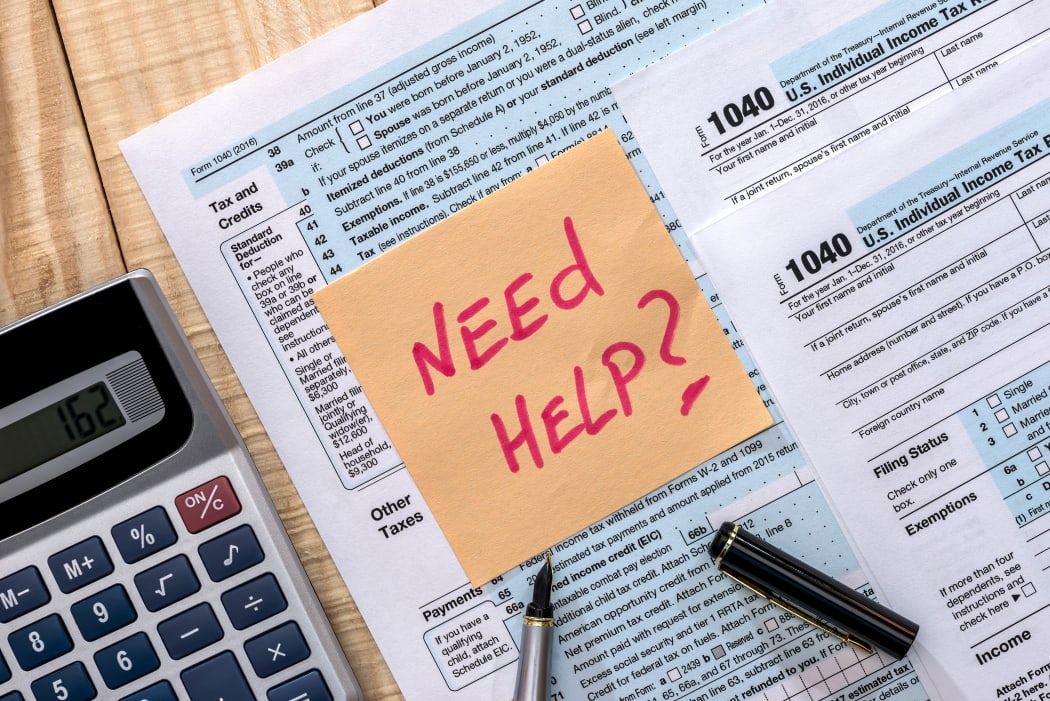No one likes to talk about taxes, so why would anybody want to make a living as a tax preparer?
There’s the flexibility, for starters. Tax preparers earn the bulk of their annual income during the first quarter of the year, between January 1 and April 30. And like teachers, many tax preparers are able to a significant amount take time off during the summer and fall, sometimes as much as three months.
What’s more, unlike certified public accountants, tax preparers aren’t required to pass rigorous accreditation exams. That means a motivated solopreneur with no post-secondary education can be start their own tax practice by getting trained as a freelance tax preparer. It can take about a month and cost as little as $100.
Tax preparers earn a median income of $30,000, but preparers in the top ten percentile earn twice that amount working an average of 22 hours per week, according to the Bureau of Labor Statistics.
Here are the milestones for starting as a tax preparer
How to Start a Tax Preparation Business: Key Milestones
So, who should consider a career as a freelance tax preparer? Individuals with strong math skills, a keen eye for details, and a desire to work one-on-one with clients. To start a tax preparation business, you will need a basic education, proper training, access to tax filing software, and — last but not least — customers. Starting your own business in tax preparation offers greater flexibility and potential income compared to working within a franchise or remote firm.
Here’s a quick and easy step-by-step guide to getting a tax business started on the cheap.
1. Education and Training
In order to become a professional tax preparer, you’ll need finish your secondary education or obtain a GED. Many tax preparers go on to pursue post-secondary education at some point during their career, but you’ll only need a high school diploma to qualify for professional training. The increasing demand for qualified tax preparers makes this a potentially lucrative career choice, and it can be more accessible than other options.
Tax preparation training seminars are typically offered during the late summer and early fall. Courses are available through community colleges and online tax preparation academies.
After you have completed your training, you can go on to take additional courses through the Internal Revenue Service’s website. The IRS offers free basic, intermediary, and advanced online courses for tax preparers.
✔ 50 self-employed business ideas you can start today with little to no training or education →
Because of the seasonal nature of tax preparation work, many tax preparers choose to pursue further education during the “off season.” At the undergraduate level, an associate’s or bachelor’s can increase your value (and thus your salary) as a tax preparer. A degree in business management can allow you transition from personal tax preparation to business financial planning.
Do you need special training to be a tax preparer?
While the IRS doesn’t mandate specific training or licenses to become a tax preparer, having a solid grasp of the U.S. tax code and its intricacies is crucial. Enrolling in a course can significantly enhance your knowledge and keep you updated with the latest tax laws and regulations.
One valuable resource is the IRS’s Annual Filing Season Program, which requires 18 hours of tax continuing education, including a six-hour federal tax law refresher course. Completing this program not only earns you an Annual Filing Season Program Record of Completion certificate but also lists you in the IRS’s online database of tax preparers, boosting your credibility and visibility.
2. Obtaining Necessary Documents
To kickstart your tax preparation business, securing the necessary documents is a must. First on the list is obtaining a Preparer Tax Identification Number (PTIN), which is essential for preparing and filing tax returns for clients. Additionally, you’ll need an Electronic Filing Identification Number (EFIN) to file tax returns electronically.
These documents help ensure that you comply with IRS regulations and can operate your preparation business smoothly. Starting a tax preparation business with these credentials not only legitimizes your practice but also builds trust with your clients.
What is a Preparer Tax Identification Number (PTIN)?
A Preparer Tax Identification Number (PTIN) is a unique nine-digit number assigned by the IRS to tax preparers. It’s a mandatory requirement for anyone who prepares and files federal tax returns for clients. To obtain a PTIN, you need to apply online through the IRS website and provide your social security number. The application process is straightforward, and PTINs are issued for free. Remember, PTINs must be renewed annually to stay compliant and continue your tax preparation services.
Obtain an Electronic Filing Identification Number (EFIN)
Clients who are filing electronically will expect their tax professional to provide rapid refund services and direct deposit. In order to do that, you’ll need to become an authorized e-filer, you must get an EFIN. In the past, this meant filing Form 8633 with the IRS. Today, however, tax preparers who plan to file 11 or more tax returns electronically can apply for an EFIN online.
To get started, you’ll need to create an IRS e-Services account to access the electronic application. The application is pretty comprehensive; it’ll ask for information about you, your firm, and your qualifications. If you’re a licensed or certified tax preparer, you’ll need to provide that professional information. But if you’re not licensed, the IRS requires you to be fingerprinted by Fieldprint. This process is free, but it’s required to help maintain the integrity of the IRS e-filing system.
Either way, once your application is submitted, you’ll undergo a suitability check. This could include a criminal background check, a credit check, and even a check of your previous tax compliance. Essentially, the IRS will verify that you are who you say you are and that you’re compliantly preparing tax forms. If you pass the suitability check, the IRS will send you written acceptance and information about your EFIN.
Having an EFIN not only allows you to offer electronic filing services but also enhances the efficiency and accuracy of your tax preparation business. Keep in mind that the application process can take up to 45 days. It’s a good idea to plan ahead and complete this step early if you plan to use electronic filing for your clients.
Do I need an Employer Identification Number (EIN)?
While we’re on the subject of tax ID numbers, you might be wondering if you need an Employer Identification Number for your tax prep business. The short answer? Maybe. But ultimately, it’ll depend on the structure of your business.
If you have any employees, you’ll need an EIN. If you have a business partner, you’ll need an EIN. You’d also need to get an EIN if you incorporated and became a corporation.
But the most common reason to get an EIN is that you’ll probably need one to get a business bank account. A dedicated account is recommended, even if you’re operating as a sole proprietorship with no employees; a business bank account helps you keep your business and personal finances separate, streamlining your finances (and your own tax preparation).
So while you’re getting a PTIN and EFIN, it’s probably a good idea to get an EIN if you don’t already have one. Talk about alphabet soup!
3. Essential Tax Preparation Software for Your Freelance Business
Be sure to stay up-to-date: federal and state tax laws are consistently amended, so it is imperative that professional tax preparers update their software as often as possible. But if you’re going to be using an e-filing software, you’ll also need to get approved and registered with the IRS.
Investing in professional tax software is a game-changer for your tax preparation business. Look for software that is cloud-based, user-friendly, and offers features like online client interactions and secure document sharing. Popular options include Drake Tax, ATX Tax, and TurboTax. These tools are specifically designed for tax preparers and can help you prepare and file tax returns efficiently and accurately. By choosing the right tax preparation software, you can streamline your workflow, enhance client satisfaction, and grow your tax practice effectively.
4. Your First Tax Clients and Beyond
After you’ve finished your tax preparation course and applied for the requisite certificates, it’s time to register as a business. Contact your Secretary of State’s office to find out if you need a business license or liability insurance in order to legally collect income from clients.
Establishing a tax preparation firm has several advantages, including minimal startup costs and significant profit potential, especially for home-based operations.
When you’re building a business on the cheap or with little or no money, you need to utilize every available resource to attract the attention of potential tax clients. Promote yourself on social media and distribute fliers and business cards to friends and family.
You can even look for gigs on Craigslist, Elance, and LinkedIn. These platforms are free, and better, there can be a ton of work there.
For the self-employed, word-of-mouth is invaluable. If you’re initially willing to offer your services at a reduced rate, then you might be able to build a reputation for reliable service in the tax preparation industry. Once your business has momentum, customers will seek you out.
✔ Use these 15 ideas to find clients for your tax preparing business for free →
So what are you waiting for? For tax preparers, April is always just around the corner!
Disclaimer: The content on this page is for information purposes only and does not constitute legal, tax, or accounting advice. If you have specific questions about any of these topics, seek the counsel of a licensed professional.
🧾 Related Business Advice
- How To Start A Low-Cost Bookkeeping Business
- 4 Essential Bookkeeping Tips For Freelancers
- Accounting Basics for Your Small Business
- Bookkeeping & Payment Course Series
- How to Empower Your Work Using OCR
- Tools to Help You Manage Your Books
- Get Your Business Up and Running Today
- Accounting 101: For Freelancers and Self-Employed
- Think Carefully When Picking a Business Accounting Software
- Apps For Keeping Better Financial Records For Your Business
- How to Organize Your Business’s Receipts for Taxes
- What is accounting?
Ready to Start Your Business?


